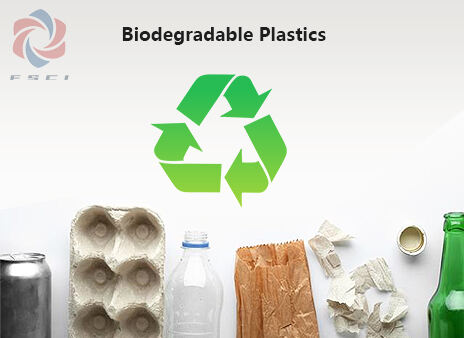紹介: 持続可能性への探求
今日、ビジネスエコロジーの意識が高まり、技術の急速な変化とともに、持続可能な素材を探すことがかつてないほど重要になっています。そのため、環境への損害を軽減または再定義する方法に関する継続的な研究が多く行われており、モノマー共重合体の例が際立っています。本記事では、Foconsci Chemical Industry Co., Ltd. のモノマー共重合体について、その機能性、用途、利点に焦点を当て、持続可能な環境材料の効果的な開発とエコフレンドリー社会の実現を目指します。
モノマー共重合体の理解
単量体コポリマーは、2つ以上の異なる単量体ユニットまたはポリマーによって形成されることを特徴とするポリマーです。他の単量体を重合に差し替えることにより、科学者たちは一部の場合ブロックコポリマーと呼ばれるコポリマーを作り出しましたが、これらは単一単量体のポリマーからは合成できません。単量体コポリマーの可能性の高い適応性は、特定の環境用途における機械的特性、熱的特性、化学的特性の範囲を変化させる可能性を与えます。単量体比率や単量体の構造配置のさまざまな組み合わせにより、環境の劣化効果に強いタフな材料を作ることが可能です。
環境材料への応用
単量体コポリマーが環境材料に使用される範囲は非常に広く多様です。最も有望な方向性の一つは、バイオ分解性プラスチックの分野です。石油化学由来の従来のプラスチックは、非分解性であるため環境問題を引き起こします。一方で、ポリ乳酸(PLA)やポリヒドロキシアルカノエート(PHA)などのバイオ分解性ポリマーは、環境中に無害な化合物に分解するため、そのような危険をもたらしません。これらは包装材、農業用資材、さらには医療分野での一回使い材料にも使用することができます。
水処理は別の重要な応用です。水処理システムは、性能を向上させるための部品の新しい設計を提供するモノマー共重合体から恩恵を受けることができます。例えば、脱塩用および膜ベースの廃棄物処理用の膜は、親水性と疎水性の両方を持つ共重合体から作られることができます。このような膜は、周囲への汚染が少なく、清潔で再現性のある水を得るために使用される汚染物質の回収に利用できます。
モノマー共重合体の利点
モノマー共重合体を使用した環境材料には、バイオ分解性や柔軟性以外にも追加の利点があります。エネルギー節約や資源節約に関する利点も提供できます。例えば、密度の低い共重合体複合材料は、車両や航空機におけるより重い構造物の代替に使用でき、燃料消費量と温室効果ガス排出量の削減につながります。
さらに、たとえばプラスチックよりも単量体共重合体をより効率的に製造することが可能であり、持続可能性に貢献します。グリーン化学の進展により、共重合プロセスで再生可能な資源やグリーン触媒を使用できるようになりました。これにより、石油への依存が緩和され、生産過程での有毒物質も減少します。これは生産における建設的なアプローチです。また、これにより単量体共重合体のリサイクラーにとっても有益で、環境に優しいものとなります。
課題と今後の方向性
これらの利点がある一方で、いくつかの妨げとなる要因により、これらの単量体共重合体は環境材料において広範な利用には至っていません。そのような妨げの一つが生産コストです。より多くの政策や規制、技術の転換によってコストが低下する可能性はありますが、単量体共重合体は依然として他の従来の材料よりも高価である可能性が高いです。
別の問題は、詳細な規制フレームワークや基準の不足です。市場に新しい材料が導入されるにつれて、それらの材料を安全に使用するためのルールを作成する必要があります。試験および認証制度を強化するには、産業界、科学界、政府の共同での協力が必要です。
完璧に先を見据えても、モノマー系コポリマーに関する研究開発活動は依然として重要です。ポリマーケミストリー、ナノテクノロジー、材料科学分野におけるさらなる進展により、より高度でより環境に優しいコポリマーを合成できる可能性があります。製造プロセスにおける規模の経済性の実現とこれらの素材を主流の用途に組み込むことは、これらの素材の商業的ポテンシャルを解き放つ上で重要な役割を果たします。
結論:モノマー系コポリマーによる持続可能な未来
フォコンシ化学工業有限公司のモノマー共重合体は、環境にやさしい素材の性能において長らく待ち望んでいた改善を提供します。その特別な特性、幅広い応用範囲、そして潜在的な利点は、世界が直面する最も緊急の問題に対処するためにこれらの素材に焦点を当てる必要性を強調しています。モノマー共重合体技術の進展を活用することで、大きな利益を得られる未来が期待できます。使用される素材は環境を悪化させるのではなく、将来の世代のためにそれを保護することになるでしょう。持続可能性への道には多くのステップがありますが、モノマー共重合体によってこの取り組みの先鋒となるものが私たちの手の中にあると言えます。


 EN
EN
 AR
AR
 BG
BG
 HR
HR
 CS
CS
 DA
DA
 NL
NL
 FI
FI
 FR
FR
 DE
DE
 EL
EL
 HI
HI
 IT
IT
 JA
JA
 KO
KO
 NO
NO
 PL
PL
 PT
PT
 RO
RO
 RU
RU
 ES
ES
 SV
SV
 TL
TL
 IW
IW
 ID
ID
 LV
LV
 LT
LT
 SR
SR
 SK
SK
 VI
VI
 HU
HU
 TH
TH
 TR
TR
 GA
GA
 CY
CY
 KA
KA
 LA
LA
 MN
MN
 KK
KK
 LB
LB


